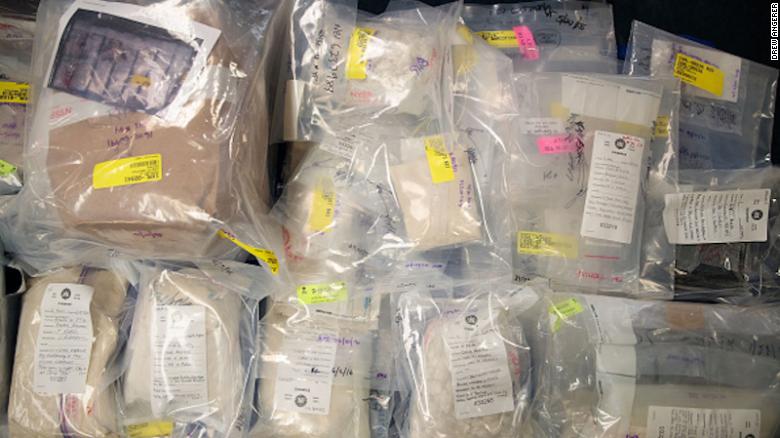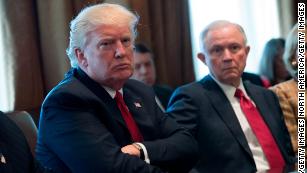Beijing rejects Trump's claims that China is behind fentanyl crisis
China's top drug control body has hit back at recent claims by US President Donald Trump that Chinese suppliers are fueling America's opioid crisis.
Yu Haibin, a senior official with China's National Narcotics Control Commission, said in a press briefing Wednesday that Trump's comments were "unacceptable" and "irresponsible."
Trump tweeted last week that it was "outrageous" that China-produced fentanyl, a cheap and deadly synthetic opioid at least 50 times stronger than heroin, continued to "pour into the US" through international mail.
Yu said the Chinese government found Trump's tweet "completely unacceptable."
"The United States has no proof that most fentanyl in the country comes from China," he said. "It's highly irresponsible to draw such a conclusion based on some individual cases."
Disagreements over the source of fentanyl in the United States and what to do about it are adding tension to US-China relations, which are already strained by disputes over trade and the South China Sea.
Washington is convinced that China is the primary source of fentanyl found within US borders, following a 2017 US Congressional report citing law enforcement and drug investigators.
In a cabinet meeting earlier in August, Trump described opioids coming into the United States from China and Mexico as American-killing "garbage," with the situation being "almost a form of warfare."
Despite improving intelligence-sharing between the two countries, Yu said US officials had only provided China with "dozens" of leads since 2017, which paled in comparison to the millions of opioid abuse cases in the United States.
Beijing officials announced on Wednesday that China will list an additional 32 New Psychoactive Substances (NPS) as controlled substances from September, making it illegal to manufacture, sell or even possess them without authorization. NPS include such "designer drugs" as fentanyl.
China lectures the United States on opioid crisis
'Good and close' relationship
Trump last year declared the opioid crisis a public health emergency in the United States and brought up the issue with Chinese President Xi Jinping when the two leaders met in Beijing in November.
Despite rejecting Trump's criticism of their efforts, Chinese officials stressed there was "good and close" cooperation between the two countries' narcotics control agencies in tackling the drug problem.
The authorities highlighted the installation of 13,000 security check machines at shipping companies in China to inspect parcels bound for "high-risk" destinations as an example of Beijing's attempts at addressing US concerns.
Another Chinese initiative involves tracking down importers of nuclear magnetic resonance (NMR) spectrometers, which are used by underground drug laboratories in China to analyze their products' chemical structures.
Trump tells Sessions to sue certain opioid companies
But Yu, the senior narcotics control official, said the United States needs to curb its huge demand for synthetic drugs, including closing loopholes in the prescription of opioids.
He also took a jab at America's changing drug culture, pointing to the trend of more states legalizing marijuana use as having a negative impact on the opioid crisis.
US Attorney General Jeff Sessions last week announced a slew of charges against two Chinese nationals for manufacturing and shipping fentanyl and other synthetic opioids across the globe, in addition to banning two opioid-selling American doctors from prescribing drugs.
He said the US Centers for Disease Control and Prevention recently estimated 72,000 people died of drug overdoses in the United States last year.
Diplomats from the United States, Europe and Asia attended Wednesday's press conference. A Beijing-based representative for the US Drug Enforcement Administration declined to comment when asked by CNN for his thoughts on the latest remarks by Chinese officials.
News Courtesy: www.cnn.com













